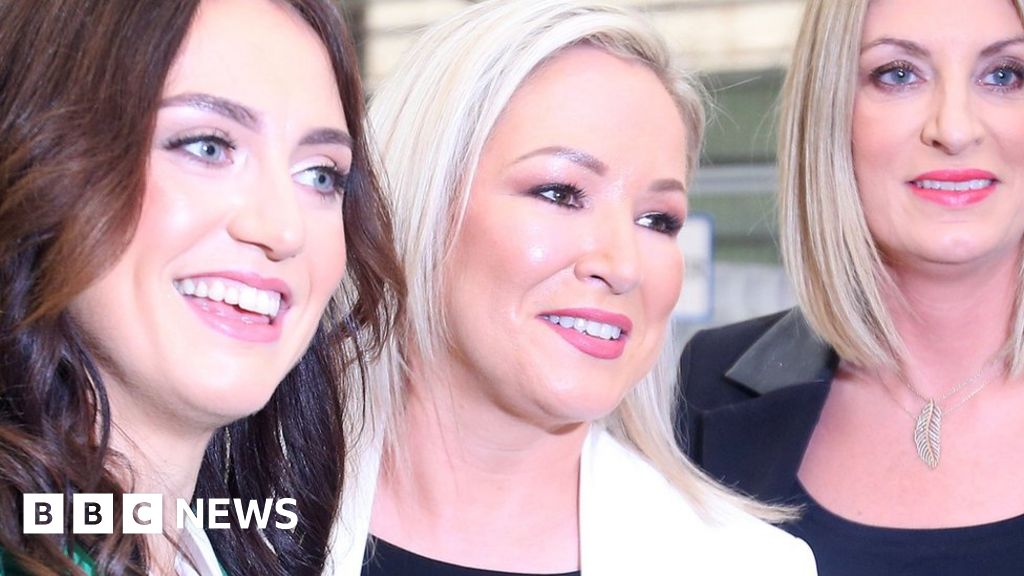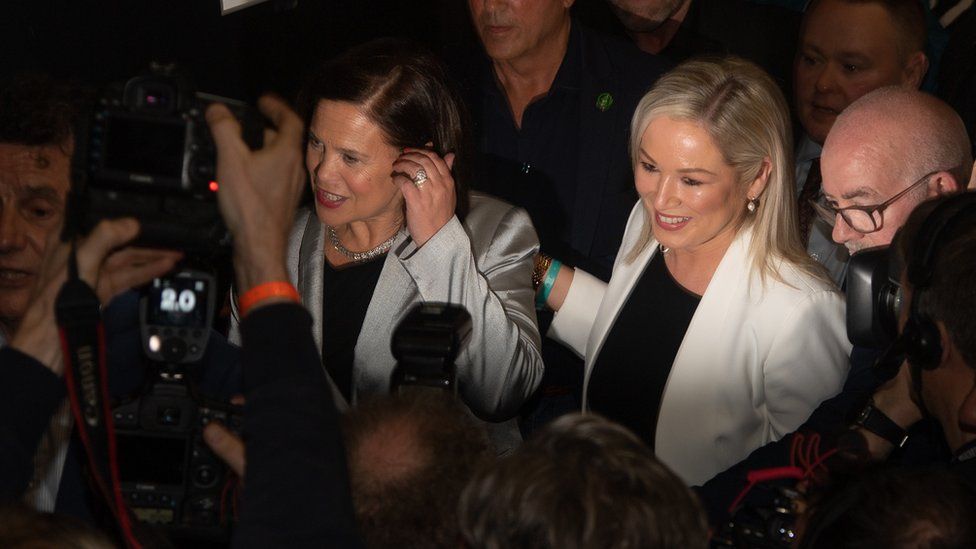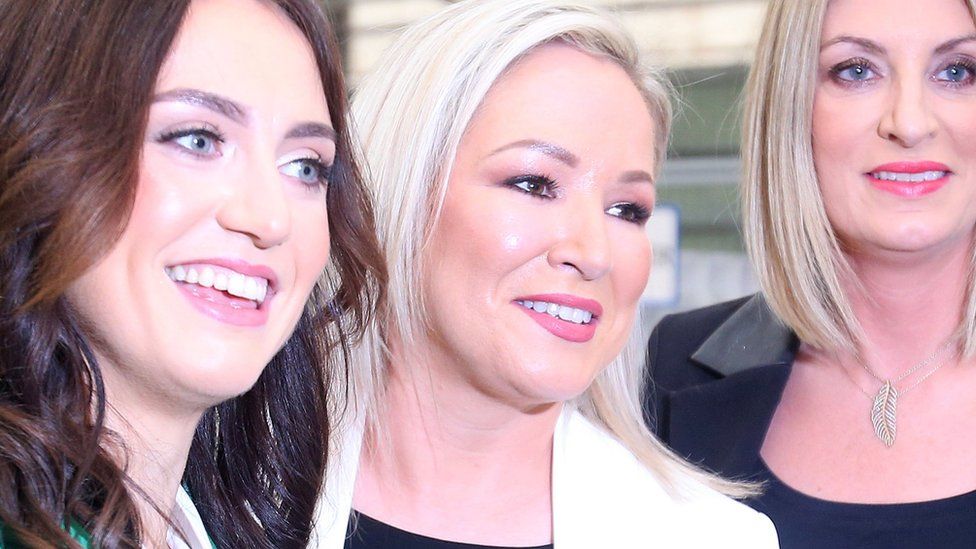
Counting in the Northern Ireland Assembly election will resume later with Sinn Féin set to win the most seats, after winning the most first preference votes.
Party leader Mary Lou McDonald said Sinn Féin was on the cusp of securing the post of first minister – a first for a nationalist party in NI.
The Democratic Unionist Party’s (DUP) first preference vote dropped, while Alliance looks set to make big gains.
There were also losses for the SDLP.
Forty-seven of the 90 seats had been declared by close of play on Friday night.
So far Sinn Féin has 18 MLAs, the Democratic Unionist Party (DUP) has 12, Alliance has eight seats, the Ulster Unionist Party (UUP) has four seats and the Social Democratic and Labour Party (SDLP) has three, the Traditional Unionist Voice (TUV) has one and there is one independent seat.
Counting will resume in three centres – Titanic Exhibition Centre in Belfast, Ulster University in Jordanstown and Meadowbank Sports Arena in Magherafelt – on Saturday morning.
This video can not be played
To play this video you need to enable JavaScript in your browser.
Sinn Féin got 250,388 first preferences, up from 224,245 in 2017.
The DUP’s first-preference vote dropped by just over 41,000 to 184,002, while the Alliance Party has increased its first preference vote by about 44,000 to 116,681.
Sinn Féin vice-president Michelle O’Neill, DUP leader Sir Jeffrey Donaldson and Alliance Party leader Naomi Long have all been elected. UUP leader Doug Beattie has yet to hear if he has retained his seat.
Traditional Unionist Voice (TUV) leader Jim Allister was also elected on Friday night.
Alliance gained seats in Lagan Valley and East Antrim.
The overall turnout was 63.6%, slightly lower than the 64.8% who voted in 2017.
First preference results
|
Party
|
Vote share
|
Change since 2017
|
|---|---|---|
|
Sinn Féin
|
29.0%
|
+1.1%
|
|
Democratic Unionist Party
|
21.3%
|
-6.7%
|
|
Alliance Party
|
13.5%
|
+4.5%
|
|
Ulster Unionist Party
|
11.2%
|
-1.7%
|
|
Social Democratic & Labour Party
|
9.1%
|
-2.9%
|
|
Traditional Unionist Voice
|
7.6%
|
+5.1%
|
|
Green Party
|
1.9%
|
-0.4%
|
|
Aontú
|
1.5%
|
+1.5%
|
|
People Before Profit
|
1.1%
|
-0.6%
|
|
Others
|
3.7%
|
|
|
Party
|
Vote share
|
|---|---|
|
Sinn Féin
|
29.0%
|
|
Democratic Unionist Party
|
21.3%
|
|
Alliance Party
|
13.5%
|
|
Ulster Unionist Party
|
11.2%
|
|
Social Democratic & Labour Party
|
9.1%
|
|
Traditional Unionist Voice
|
7.6%
|
|
Green Party
|
1.9%
|
|
Aontú
|
1.5%
|
|
People Before Profit
|
1.1%
|
|
Others
|
3.7%
|
|
Party
|
Change since 2017
|
|---|---|
|
Sinn Féin
|
+1.1%
|
|
Democratic Unionist Party
|
-6.7%
|
|
Alliance Party
|
+4.5%
|
|
Ulster Unionist Party
|
-1.7%
|
|
Social Democratic & Labour Party
|
-2.9%
|
|
Traditional Unionist Voice
|
+5.1%
|
|
Green Party
|
-0.4%
|
|
Aontú
|
+1.5%
|
|
People Before Profit
|
-0.6%
|

The die has been cast

Sinn Féin are the big winners and will be returned as the largest party at Stormont.
The Alliance Party surge is continuing as well – the party came into the election the fifth largest party at Stormont and will be coming out the other side in third place.
The DUP’s percentage vote has fallen, but the party may well escape with just losing two to three seats which was much better perhaps than many of the pollsters had predicted.
The TUV is also a winner and saw its percentage vote increase, but it’s not quite clear yet whether the party will be able to tag on any extra seats.
The big loser is the SDLP – their vote has dropped and will be well below 10%.
The Ulster Unionists will probably stand still with 10 seats or so.

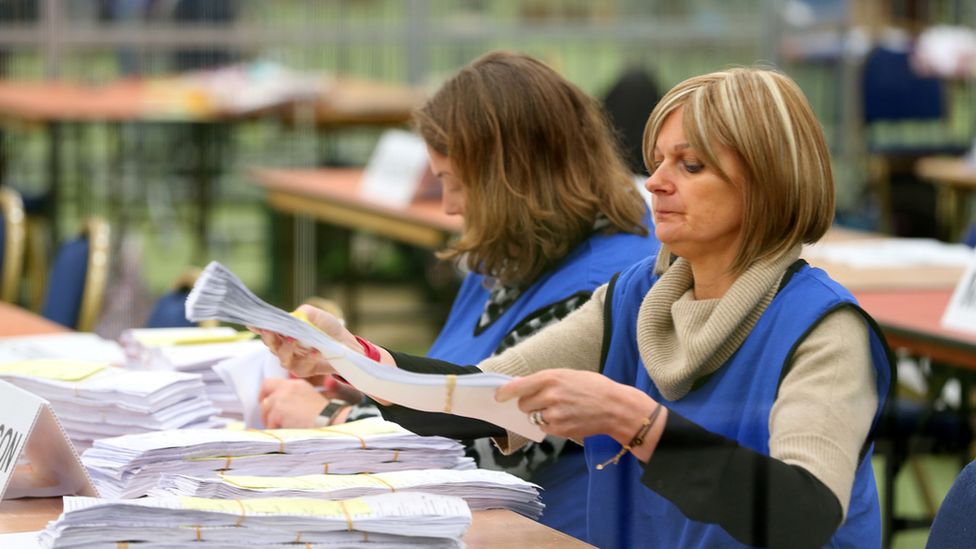
A number of prominent politicians have failed to gain seats in this assembly election.
Former education minister Peter Weir, of the DUP, who had been a member of the first assembly in 1998 lost his seat in Strangford.
The UUP’s Roy Beggs, who had also been elected since the post-Good Friday Agreement poll, was eliminated in East Antrim.
The SDLP’s Dolores Kelly failed to win her seat back in Upper Bann after being eliminated in stage three.
Vying for top spot
The DUP and Sinn Féin are vying for top spot in the election, which comes with the entitlement to nominate the next first minister.
While the office of the first and deputy first minister is an equal one with joint power, the allocation of the titles is regarded as symbolically important.
A unionist party has always been the largest in the assembly, and previously the Stormont Parliament, since the formation of Northern Ireland in 1921.
For Sinn Féin to be installed in the role, the majority of unionist assembly members would have to agree to form a power-sharing coalition.
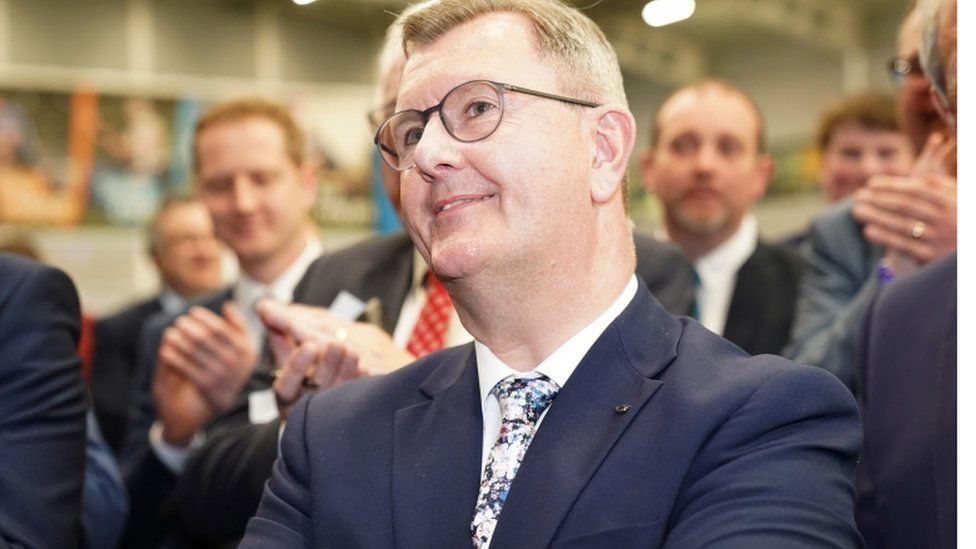
But DUP leader Sir Jeffrey Donaldson has said that he will not be nominating any ministers to the executive until the issue of the Northern Ireland Protocol is resolved.
Sinn Féin’s ultimate goal is for Northern Ireland to leave the UK and become one country with the Republic of Ireland.
But a victory for Sinn Féin does not mean a border poll would be imminent.
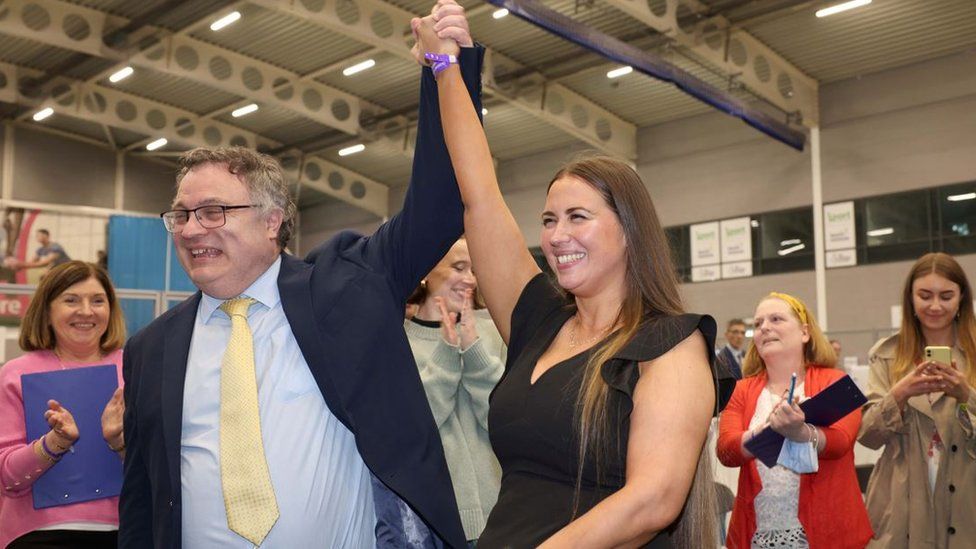
The DUP won 28 seats at the last assembly election in 2017, just ahead of Sinn Féin’s 27.
Next was the SDLP with 12 seats, the UUP with 10, Alliance with eight and the Green Party with two, while People Before Profit and TUV had one MLA each.
Protocol implications
The result of this election will have significance for the future of the Northern Ireland Protocol.
The protocol is the Brexit deal that prevents a hard Irish border by keeping Northern Ireland inside the European Union’s (EU) single market for goods.
It also creates a new trade border between Northern Ireland and the rest of the UK.
The assembly members who are elected will have to vote on whether to continue with the parts of the protocol which create the internal UK trade border.
That consent vote has to take place before the end of 2024. The vote will be decided by simple majority rather than requiring cross-community consent.
Unionist parties oppose the protocol whereas nationalists and the cross-community Alliance Party see it is an acceptable compromise to mitigate some of the impacts of Brexit.
The Northern Ireland Protocol has cast a long shadow over the election campaign following the resignation of First Minister Paul Givan in February.
The move by the DUP was in an effort to force the UK government to act over the post-Brexit trading arrangements.
Northern Ireland Secretary Brandon Lewis has indicated that the government will not be introducing legislation relating to the protocol in the Queen’s Speech next week.

SIGN UP FOR ALERTS: Get extra updates on BBC Northern Ireland election coverage

Elections for the assembly use the single transferable vote (STV) system of proportional representation.
Voters list candidates in order of preference and once their top-ranked candidate is elected or eliminated, their vote is allocated to their next-ranked candidate.
This can lead to many stages of counting and can take many hours.

- POSTCODE SEARCH: What are the results in my area?
- NOTIFICATIONS: Sign up for Northern Ireland election alerts
- THE ASSEMBLY:How power-sharing works in Northern Ireland

-
- 2 days ago

